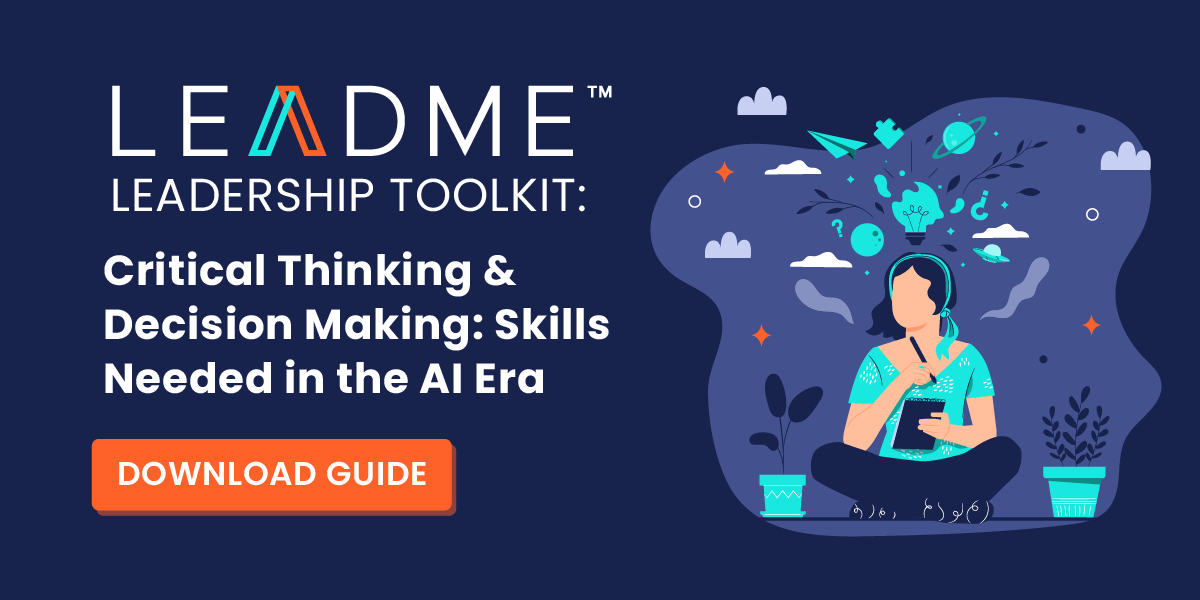It’s undeniable that between the pandemic and AI technology, these past few years have been a massive shift in how, where and when our work gets done.
If you have mixed feelings about this, that’s understandable.
On the one hand advancements such as ChatGPT can be a useful tool for brainstorming and helping you refine copy.
On the other hand, it can be overwhelming to think that the work you’re doing right now could be automated soon. As backed up by a survey from EY research showing that 65% of people are anxious about AI replacing their job.
But there are two skills that AI cannot replace and these are ones that every leader needs to develop and continually hone.
Are you discerning with the information you absorb? What about the information you share with others? How are you coaching your team to use ChatGPT for brainstorming and speed while ensuring it’s not just being repurposed straight into their work? With so much information at our fingertips, it’s crucial to sift through the noise, analyse data, take on different perspectives and double check sources.
As this
Forbes article shared, “With AI use being so rampant (and not always produced by people with the best intentions), it is crucial that you carefully vet new information, particularly by evaluating the source of that information (human or otherwise). Be careful to consider multiple points of view as a measure of countering your own biases and preconceived notions, and do research to gather additional information.”
I am definitely seeing a growing demand for business professionals with the capacity to analyse information and make appropriate decisions. Which leads me to the next skill…
The speed at which we need to make decisions has increased, and the stakes are often higher. We need to be agile, capable of making swift yet thoughtful choices that consider both short-term impacts and long-term consequences. This means being comfortable with uncertainty and having the foresight to anticipate how new technologies might evolve and affect the business landscape.
Good decision-making ultimately comes down to our ability to utilise the many different tools, frameworks and models available to us in order to think critically, to reason and rationalise with others, to consider your inner critic and to derive insights from large amounts of data.
Empty space, drag to resize

Empty space, drag to resize
While investing in your team’s technical training is crucial, remember that the real strength of your organisation lies in its people. Empowering your leaders with critical thinking, decision-making, and other leadership skills will help them navigate technological advancements and the AI era.
If you’d like to learn more about our Leadership Development & Coaching Programmes, reach out to me on email at jackie@leadme.academy. I'd love to hear from you!
Onward and upward,
Jackie


